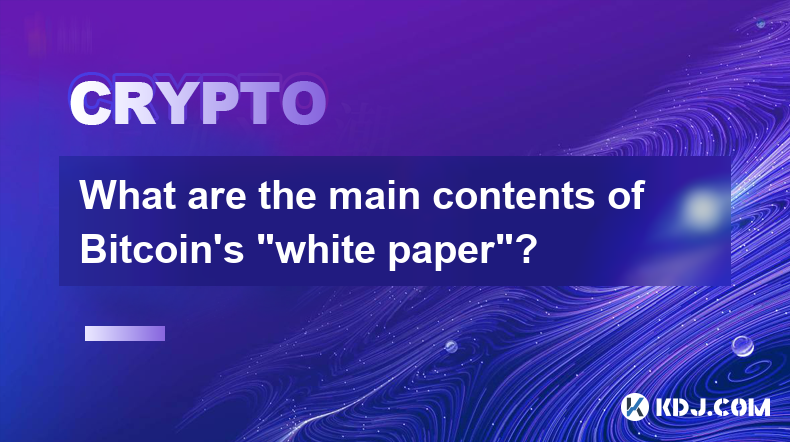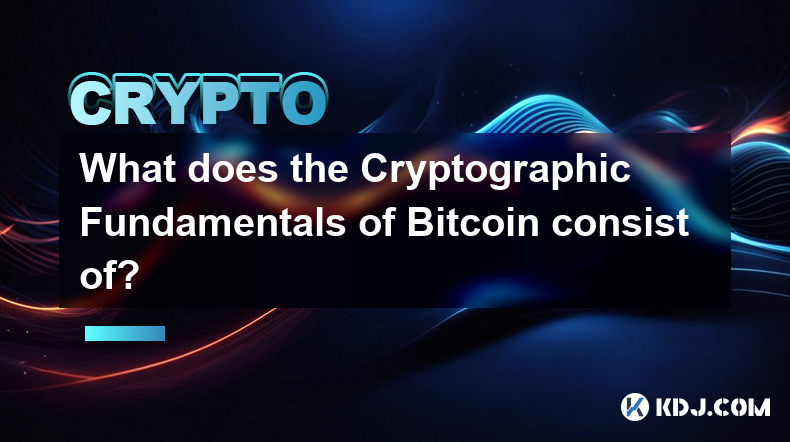-
 Bitcoin
Bitcoin $96,161.2493
-2.14% -
 Ethereum
Ethereum $2,686.5756
-2.45% -
 XRP
XRP $2.5719
-3.67% -
 Tether USDt
Tether USDt $0.9999
-0.04% -
 BNB
BNB $655.8976
-0.15% -
 Solana
Solana $171.9849
-2.65% -
 USDC
USDC $1.0001
0.00% -
 Dogecoin
Dogecoin $0.2435
-4.35% -
 Cardano
Cardano $0.7615
-4.97% -
 TRON
TRON $0.2379
-4.28% -
 Chainlink
Chainlink $17.4447
-5.17% -
 Avalanche
Avalanche $24.9624
-1.92% -
 Sui
Sui $3.3374
-3.85% -
 Stellar
Stellar $0.3266
-3.96% -
 Litecoin
Litecoin $127.2255
-5.17% -
 Toncoin
Toncoin $3.6609
1.73% -
 Shiba Inu
Shiba Inu $0.0...01526
-2.42% -
 UNUS SED LEO
UNUS SED LEO $9.7275
-0.32% -
 Hedera
Hedera $0.2145
-3.18% -
 Hyperliquid
Hyperliquid $24.2706
-2.62% -
 Polkadot
Polkadot $5.0883
0.29% -
 MANTRA
MANTRA $7.6370
0.37% -
 Bitcoin Cash
Bitcoin Cash $317.1514
-3.50% -
 Bitget Token
Bitget Token $5.0005
7.55% -
 Ethena USDe
Ethena USDe $0.9987
-0.10% -
 Dai
Dai $1.0000
-0.01% -
 Uniswap
Uniswap $8.8025
-5.45% -
 Monero
Monero $233.1225
-0.50% -
 NEAR Protocol
NEAR Protocol $3.4727
-2.15% -
 Pepe
Pepe $0.0...09302
-4.88%
What is Ethereum's block time?
Understanding Ethereum's dynamic block time, influenced by transaction volume, gas fees, and network congestion, is crucial for developers, miners, and users to optimize applications, estimate transaction confirmation times, and enhance overall network performance.
Feb 18, 2025 at 09:24 pm

Key Points:
- Ethereum's block time varies dynamically based on network conditions.
- The average block time is around 13 seconds, with a target of 15 seconds.
- Factors influencing block time include transaction volume, gas fees, and network congestion.
- Understanding block time is crucial for developers, miners, and users.
Understanding Ethereum's Block Time
Ethereum's block time is the average interval between successive blocks added to the blockchain. It plays a crucial role in the network's overall performance, security, and scalability.
Factors Influencing Block Time
Several factors influence Ethereum's block time:
- Transaction Volume: Higher transaction volume leads to increased competition for inclusion in blocks, resulting in longer block times.
- Gas Fees: Miners prioritize transactions with higher gas fees, which can lead to quicker block creation for these transactions.
- Network Congestion: When the network is heavily utilized, miners may slow down block creation to prevent the chain from becoming overpopulated or reaching capacity.
- Uncle Blocks: Occasionally, multiple valid blocks are created within a short period, known as "uncle blocks." These blocks delay the propagation of the main block, resulting in longer block times.
Significance of Block Time
Understanding Ethereum's block time is important for various stakeholders:
- Developers: They need to consider block time when estimating transaction confirmation times and optimizing applications.
- Miners: They can adjust their block production strategy based on network conditions and profitability.
- Users: They can estimate transaction confirmation times and plan accordingly.
Technical Details of Ethereum's Block Time
- Target Block Time: Ethereum aims for a target block time of 15 seconds. However, this may vary due to network conditions.
- Dynamic Adjustment: Ethereum uses a dynamic difficulty adjustment mechanism to maintain an average block time close to the target.
- Uncle Blocks: Every seven blocks, the longest uncle block with a non-zero parent block is included in the main chain, delaying block time.
FAQs
Q: What is the average block time for Ethereum?
A: The average block time is around 13 seconds, with a target of 15 seconds.
Q: Can I estimate the confirmation time for my transaction?
A: Yes, you can estimate the confirmation time based on block time and network congestion. Transactions with higher gas fees tend to confirm faster.
Q: Why does block time fluctuate?
A: Block time fluctuates due to varying network traffic, gas fees, and occasional uncle blocks.
Q: How can I optimize my transaction speed?
A: You can optimize transaction speed by using higher gas fees or waiting for network traffic to subside.
Q: How does block time affect network security?
A: Longer block times reduce the frequency of block creation, which can increase the time it takes to reorganize the blockchain in case of a fork.
Disclaimer:info@kdj.com
The information provided is not trading advice. kdj.com does not assume any responsibility for any investments made based on the information provided in this article. Cryptocurrencies are highly volatile and it is highly recommended that you invest with caution after thorough research!
If you believe that the content used on this website infringes your copyright, please contact us immediately (info@kdj.com) and we will delete it promptly.
- 5 Best Cryptos to Buy Today: BTFD Coin, Dogecoin, Goatseus Maximus, Baby Doge Coin, Pudgy Penguins
- 2025-02-22 16:30:25
- New IP-Focused Altcoin Surges 164% in First Week Amid Launch of Research Collaboration With Stanford University
- 2025-02-22 16:30:25
- Top Crypto Projects to Invest in February 2025: Qubetics, Render, Solana, and XRP
- 2025-02-22 16:30:25
- Discover the Future of Digital Currency: Insights into SEI, EOS, and the Revolutionary Qubetics
- 2025-02-22 16:30:25
- Bybit Hit By Colossal $1.46 Billion Hack, Biggest Crypto Theft In History
- 2025-02-22 16:30:25
- BTFD Coin: The Ultimate Play for Smart Investors
- 2025-02-22 16:30:25
Related knowledge

What are the main contents of Bitcoin's "white paper"?
Feb 21,2025 at 04:36am
Key Points:Understanding Bitcoin's Genesis: The White Paper's IntroductionA Decentralized Digital Currency: Bitcoin's Core ConceptBlockchain Technology: The Foundation of Bitcoin's Immutable LedgerProof-of-Work: Securing Bitcoin's NetworkThe Design of Bitcoin's Currency: Issuance, Scarcity, and DivisibilityBitcoin's Potential Applications and Future Pro...

What does the Cryptographic Fundamentals of Bitcoin consist of?
Feb 21,2025 at 12:06pm
Key PointsUnderstanding the cryptographic algorithms used in BitcoinFamiliarization with the Bitcoin blockchain and its underlying mechanicsExamination of the security measures that protect Bitcoin from attackAnalysis of the decentralized nature of Bitcoin and its implicationsDiscussion of the scalability and transaction fee issues associated with Bitco...

How do Bitcoin mining pools work?
Feb 21,2025 at 09:07pm
Key Points of Bitcoin Mining Pools:Understanding Bitcoin Mining PoolsSteps to Join a Bitcoin Mining PoolChoosing the Right Mining PoolBenefits and Considerations of Mining PoolsHow do Bitcoin mining pools work?Understanding Bitcoin Mining PoolsBitcoin mining pools are distributed networks of mining participants who combine their computing power to solve...

What role does Bitcoin's hash function play in the system?
Feb 21,2025 at 09:06am
Key PointsSecure Data Storage: The hash function safeguards data within Bitcoin's blockchain, ensuring its immutability and integrity.Transaction Verification: The hash function plays a crucial role in verifying transactions and maintaining the network's consensus.Security against Double-Spending: The hash function helps prevent double-spending by crypt...

What is the initial purchase and transaction process for Bitcoin?
Feb 20,2025 at 01:00pm
Key Points:Understanding the concept of BitcoinCreating a Bitcoin walletFunding your Bitcoin walletPurchasing Bitcoin through an exchangeConfirming and receiving BitcoinInitial Purchase and Transaction Process for Bitcoin1. Understanding BitcoinBitcoin is a decentralized digital currency created in 2009 by an unknown individual or group using the pseudo...

What are Bitcoin's Layer 2 solutions?
Feb 20,2025 at 01:18pm
Key Points:Understanding Bitcoin's transaction limitationsScaling solutions for Bitcoin: Layer 2 protocolsBenefits of Layer 2 solutionsPopular Layer 2 solutions for BitcoinWhat are Bitcoin's Layer 2 Solutions?Bitcoin, the pioneering cryptocurrency, has played a pivotal role in shaping the decentralized finance landscape. However, it faces the persistent...

What are the main contents of Bitcoin's "white paper"?
Feb 21,2025 at 04:36am
Key Points:Understanding Bitcoin's Genesis: The White Paper's IntroductionA Decentralized Digital Currency: Bitcoin's Core ConceptBlockchain Technology: The Foundation of Bitcoin's Immutable LedgerProof-of-Work: Securing Bitcoin's NetworkThe Design of Bitcoin's Currency: Issuance, Scarcity, and DivisibilityBitcoin's Potential Applications and Future Pro...

What does the Cryptographic Fundamentals of Bitcoin consist of?
Feb 21,2025 at 12:06pm
Key PointsUnderstanding the cryptographic algorithms used in BitcoinFamiliarization with the Bitcoin blockchain and its underlying mechanicsExamination of the security measures that protect Bitcoin from attackAnalysis of the decentralized nature of Bitcoin and its implicationsDiscussion of the scalability and transaction fee issues associated with Bitco...

How do Bitcoin mining pools work?
Feb 21,2025 at 09:07pm
Key Points of Bitcoin Mining Pools:Understanding Bitcoin Mining PoolsSteps to Join a Bitcoin Mining PoolChoosing the Right Mining PoolBenefits and Considerations of Mining PoolsHow do Bitcoin mining pools work?Understanding Bitcoin Mining PoolsBitcoin mining pools are distributed networks of mining participants who combine their computing power to solve...

What role does Bitcoin's hash function play in the system?
Feb 21,2025 at 09:06am
Key PointsSecure Data Storage: The hash function safeguards data within Bitcoin's blockchain, ensuring its immutability and integrity.Transaction Verification: The hash function plays a crucial role in verifying transactions and maintaining the network's consensus.Security against Double-Spending: The hash function helps prevent double-spending by crypt...

What is the initial purchase and transaction process for Bitcoin?
Feb 20,2025 at 01:00pm
Key Points:Understanding the concept of BitcoinCreating a Bitcoin walletFunding your Bitcoin walletPurchasing Bitcoin through an exchangeConfirming and receiving BitcoinInitial Purchase and Transaction Process for Bitcoin1. Understanding BitcoinBitcoin is a decentralized digital currency created in 2009 by an unknown individual or group using the pseudo...

What are Bitcoin's Layer 2 solutions?
Feb 20,2025 at 01:18pm
Key Points:Understanding Bitcoin's transaction limitationsScaling solutions for Bitcoin: Layer 2 protocolsBenefits of Layer 2 solutionsPopular Layer 2 solutions for BitcoinWhat are Bitcoin's Layer 2 Solutions?Bitcoin, the pioneering cryptocurrency, has played a pivotal role in shaping the decentralized finance landscape. However, it faces the persistent...
See all articles














![BONK The Meme Coin MORE THAN ORDINARY [DOG] on Solana BONK The Meme Coin MORE THAN ORDINARY [DOG] on Solana](/uploads/2025/02/22/cryptocurrencies-news/videos/bonk-meme-coin-ordinary-dog-solana/image-1.jpg)


































































